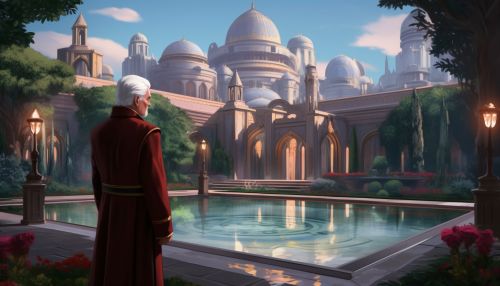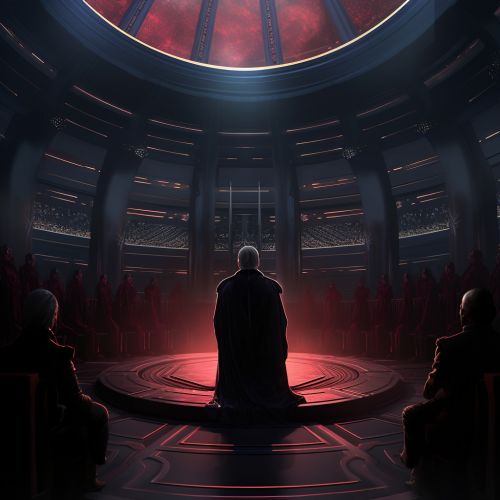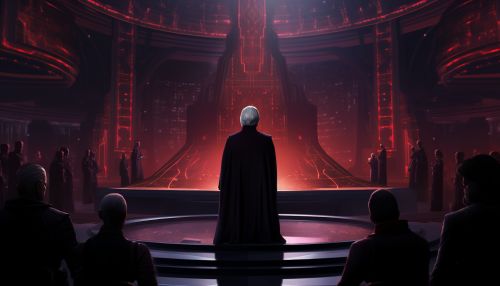Emperor Palpatine
Early Life
Emperor Palpatine, born as Sheev Palpatine on the planet Naboo, was raised in an aristocratic family. His father, Cosinga, was a stern and unloving figure, while his mother was a distant and uninvolved parent. Palpatine's early life was marked by a thirst for knowledge and power, which was largely unsatisfied by his family's conventional aristocratic lifestyle.


Political Career
Palpatine's political career began when he was a young man, serving as an assistant to Naboo's representative in the Galactic Senate. His cunning and ambition quickly propelled him up the political ladder, and he eventually became the Senator of Naboo. Palpatine's tenure as Senator was marked by his skillful manipulation of political alliances and his ability to play both sides of any conflict to his advantage.
Rise to Power
Palpatine's rise to power was a masterstroke of political maneuvering. He orchestrated the Clone Wars, a galaxy-wide conflict that allowed him to consolidate power in the name of security and stability. During this time, he was secretly the Sith Lord Darth Sidious, manipulating events from behind the scenes. At the end of the Clone Wars, Palpatine declared himself Emperor, transforming the democratic Galactic Republic into the autocratic Galactic Empire.


Reign as Emperor
Emperor Palpatine's reign was marked by tyranny and oppression. He ruled with an iron fist, suppressing any opposition with brutal force. His rule saw the construction of the Death Star, a moon-sized battle station capable of destroying entire planets. Despite his oppressive rule, Palpatine maintained a veneer of benevolence and stability, convincing many citizens of the Empire that his rule was necessary for peace and order.
Fall and Resurrection
Emperor Palpatine's reign came to an end when he was betrayed and killed by his apprentice, Darth Vader, during the Battle of Endor. However, Palpatine had foreseen this possibility and had prepared a contingency plan. Using Sith alchemy and cloning technology, he was able to transfer his essence into a new body, effectively resurrecting himself. This resurrection was short-lived, however, as he was ultimately defeated by Rey, the last Jedi, during the Battle of Exegol.


Legacy
Despite his death, Emperor Palpatine's legacy continues to shape the galaxy. His reign led to the rise of the First Order, a military dictatorship that sought to restore the Galactic Empire. His resurrection and final defeat served as a warning of the dangers of unchecked power and the dark side of the Force.
